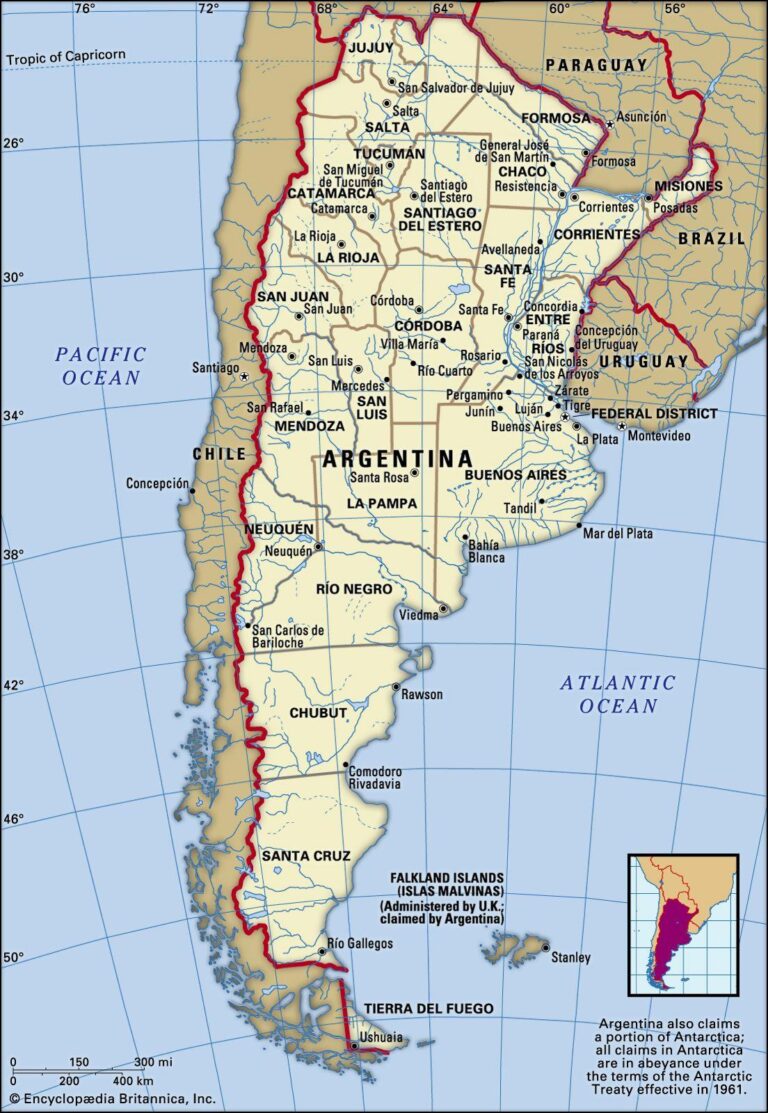Argentina’s highest court has upheld the corruption conviction of former President Cristina Fernández de Kirchner, delivering a landmark ruling that reverberates through the nation’s political landscape. The decision, announced Tuesday, affirms charges related to kickbacks and embezzlement during her administration, solidifying a contentious chapter in Argentina’s ongoing battle against political corruption. As Fernández de Kirchner remains a towering figure in Argentine politics, the ruling is poised to have significant implications for her political future and the broader fight for judicial accountability in the country.
Argentina’s Supreme Court Confirms Corruption Conviction Against Former Vice President
Argentina’s highest judicial authority has confirmed the corruption conviction of its former Vice President, reinforcing a landmark ruling in the country’s ongoing battle against political corruption. The Supreme Court’s decision validates earlier findings that implicated Cristina Fernández de Kirchner in illicit activities tied to public contracts during her tenure as president. This case marks a pivotal moment in Argentine politics, showcasing the judiciary’s growing assertiveness in holding high-profile figures accountable.
Key details spotlighted in the ruling include:
- Charges: Fraud and misuse of public funds related to public works projects.
- Legal outcome: Upheld conviction and affirmed sentence handed down by lower courts.
- Political impact: Deepening polarization among supporters and critics nationwide.
- Future implications: Potential for further legal proceedings against other officials involved.
| Aspect | Details |
|---|---|
| Conviction Date | June 2024 |
| Sentence | 4 years imprisonment (suspended) |
| Related Cases | 4 ongoing investigations |
| Public Reaction | Mixed, with protests and support rallies |
Legal Experts Examine Implications for Political Accountability and Judicial Independence
Legal analysts are highlighting the profound consequences this ruling has on Argentina’s political and judicial framework. The affirmation of Cristina Fernández de Kirchner’s corruption conviction by the nation’s highest court not only asserts the strengthening of judicial scrutiny over political figures but also raises critical questions about maintaining impartiality within the judiciary. Experts emphasize that upholding such high-profile convictions can serve as a deterrent against political corruption, signaling a potential shift toward enhanced political accountability after decades of systemic challenges.
However, concerns persist regarding the delicate balance between ensuring justice and preserving judicial independence amid politically charged cases. Critics warn of the risks of perceived judicial overreach or politicization that could undermine public trust in the courts. The debate coalesces around key issues:
- Separation of powers: Ensuring the judiciary operates free from political influence while holding elites accountable.
- Transparency: The need for clear, consistent legal standards to prevent accusations of selective justice.
- Precedent-setting: How this ruling may influence future cases involving political figures and corruption.
| Aspect | Potential Impact | Challenges |
|---|---|---|
| Political Accountability | Increased deterrence of corruption | Resistance from entrenched political interests |
| Judicial Independence | Reinforced impartial review | Risk of judicial politicization |
| Public Trust | Greater confidence in rule of law | Potential polarization in public opinion |
Recommendations for Strengthening Anti-Corruption Measures in Argentine Governance
To curb systemic corruption within Argentine governance, it is imperative to enhance transparency and accountability at all levels of government. Strengthening the independence and resources of judicial bodies can empower them to act decisively against corrupt officials without political interference. Additionally, implementing rigorous asset disclosure requirements for public officials and regular audits by autonomous entities will help detect illicit enrichment early on.
Key strategies include:
- Establishing stronger whistleblower protections to encourage insiders to report misconduct safely.
- Upgrading public procurement processes through digital platforms to minimize discretionary powers.
- Promoting civic education about corruption’s impact, fostering a culture of integrity.
| Measure | Expected Impact |
|---|---|
| Judicial Independence Reform | Faster, unbiased corruption trials |
| Digital Public Procurement | Reduced opportunities for bribery |
| Asset Declaration Transparency | Early detection of illicit wealth |
To Conclude
The decision by Argentina’s Supreme Court to uphold the corruption conviction of former President Cristina Fernández de Kirchner marks a significant moment in the country’s ongoing battle against political corruption. As one of the nation’s most influential and polarizing figures, Fernández de Kirchner’s legal challenges continue to shape Argentina’s political landscape. The ruling underscores the judiciary’s role in addressing high-profile cases and signals a continued push for accountability at the highest levels of government. Observers will be closely watching how this verdict impacts both Fernández de Kirchner’s political future and the broader dynamics within Argentine politics.




